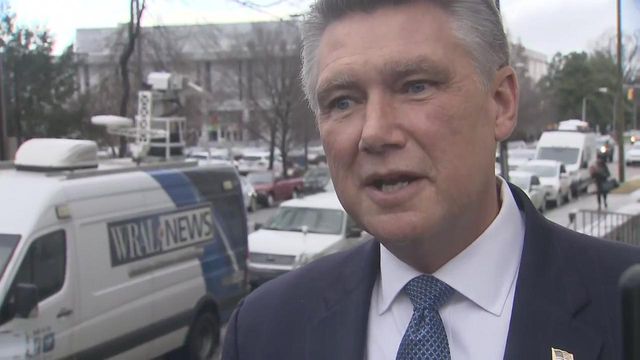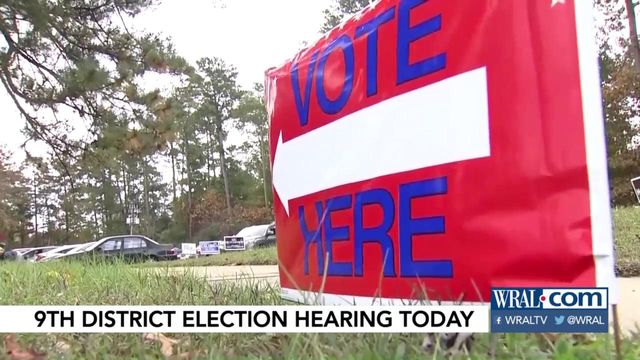What's at stake in state investigation into alleged fraud in 9th Congressional District election
What you need to know about the State Board of Elections hearing into the 9th Congressional District election.
Posted — UpdatedBecause of those irregularities, the board has yet to certify results from November, leaving the 9th District without a representative in the U.S. House.
Here are answers to some common questions about the hearing:
After the November election, the State Board of Elections looked into unusual absentee ballot trends in Bladen and Robeson counties, which had oddly high percentages of unreturned ballots. The board decided in two bipartisan votes not to certify the election and to hold an evidentiary hearing. That hearing was delayed twice, first because the board decided staff needed more time to investigate, and second because of an unrelated court battle that began long before the election and subsequently dissolved the old board. A new board is now in place.
These hearings are not unheard of, but rarely are the stakes this high. Some of the key players this go around also took part in an evidentiary hearing in 2016, when outgoing Gov. Pat McCrory's attorneys made a largely unsuccessful push to question votes in that election.
At the North Carolina State Bar, 217 E. Edenton St., Raleigh.
As long as three days. It's hard to say. Each side has lengthy witness lists, but the state board hasn't said how many will actually be called.
Yes, yes and sort of. In past hearings, witnesses have invoked the Fifth Amendment to avoid answering questions. Worth noting: There's also an open criminal investigation into 9th District results.
The board could call for a new election, but four of the five board members would have to vote for that option. The board has three Democrats and two Republicans, so the vote would have to be bipartisan.
The board could also vote to certify the election – in effect saying the irregularities were not extensive enough to have changed the outcome. Only three votes are required to certify.
The board could simply refer its findings to the U.S. House of Representatives. It could also stalemate, and if that happens, the election would be certified automatically 10 days after the failed vote. But the likelihood of U.S. House involvement means that might not matter. More on that below.
Republican Mark Harris leads Democrat Dan McCready by 905 votes in the unofficial count. But the board doesn't necessarily have to show that there are 905 votes in question. The law allows for a new election to be called if "irregularities or improprieties occurred to such an extent that they taint the results of the entire election and cast doubt on its fairness.” Some Republicans, citing court precedent, have said that only calling enough votes into question satisfies the law. But there are four separate reasons in the law for calling a new election, and the "taint" one doesn’t say anything about number of votes, while the three others do.
Yes. There are allegations, including an affidavit from a poll worker, that totals from early in-person voting were shared with someone before Election Day. The state GOP is on record saying that, if this occurred, it’s a strategic advantage for Election Day turnout operations and enough on its own to warrant a new election.
Probably. The state legislature changed the law in December, in response to the 9th District controversy, to require a new primary if a new election is called. However, a former state Supreme Court justice says the primary requirement is unconstitutional, so this could end up in court.
Related Topics
• Credits
Copyright 2024 by Capitol Broadcasting Company. All rights reserved. This material may not be published, broadcast, rewritten or redistributed.






